A group of electric cooperative lineworkers from Minnesota and Iowa traveled 2,800 miles in June to transform a rural Guatemalan village, improving lives for generations. The trip was part of the National Rural Electric Cooperative Association’s International Program, which since 1962 has provided opportunities for volunteers to illuminate villages and homes in impoverished countries around the world.
Several lineworkers from Great River Energy’s member-owner cooperatives traveled to Guatemala for two weeks to help with this life-changing work. The village of Las Peñas, at an elevation of around 6,000 feet, is made up of about 35 homes scattered on the crests and flat areas of the mountainside, near the larger community of Jalapa in eastern Guatemala. Crews helped build more than three miles of powerlines and wired the homes for electric service.
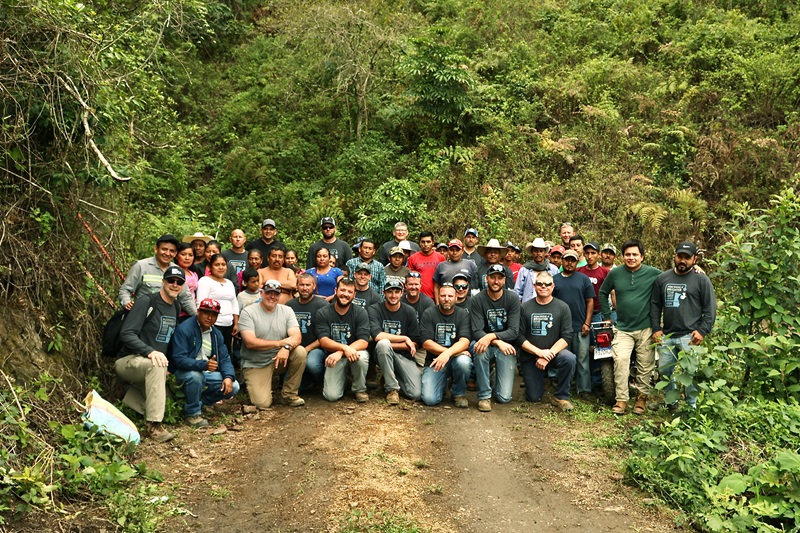
The lineworkers who volunteered are used to working hard in some rough conditions, but this two-week trip pushed them to new limits. The ride to the village, after the staging area at a local ranch, was grueling. To get to the village, the team spent more than an hour bouncing over rocks — splashing through puddles and sliding on a wet, red clay road that was built just four weeks earlier. The rain, coming in sheets at times or as a lingering gray mist, kept the road slick and travel slow, and caused the team to walk the last mile into the village on a couple of days.
“The terrain was harder than I thought it was going to be,” said Grant Kulzer, who works at Stearns Electric Association. “It rained every night.”
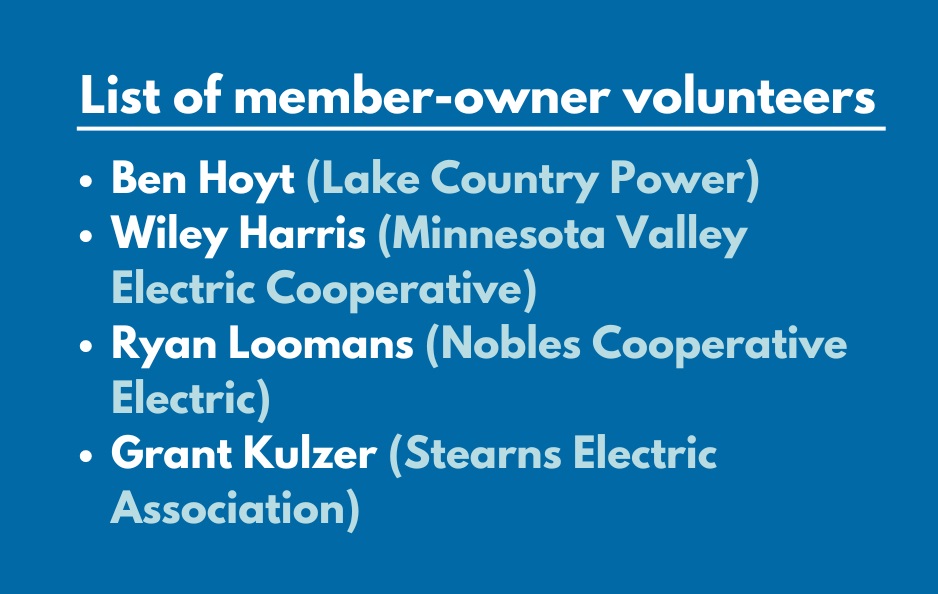
All the work had to be done by hand without bucket trucks and other large equipment available in the states. However, they did have willing local residents. The crews were amazed at how the locals did the work that would be done by equipment back home, running the line down one side of the mountain and back up the other.
“The locals are amazing, and they go through this terrain like we walk on flat ground,” said Ryan Loomans of Nobles Cooperative Electric. “It’s amazing, we couldn’t have done it without them.”
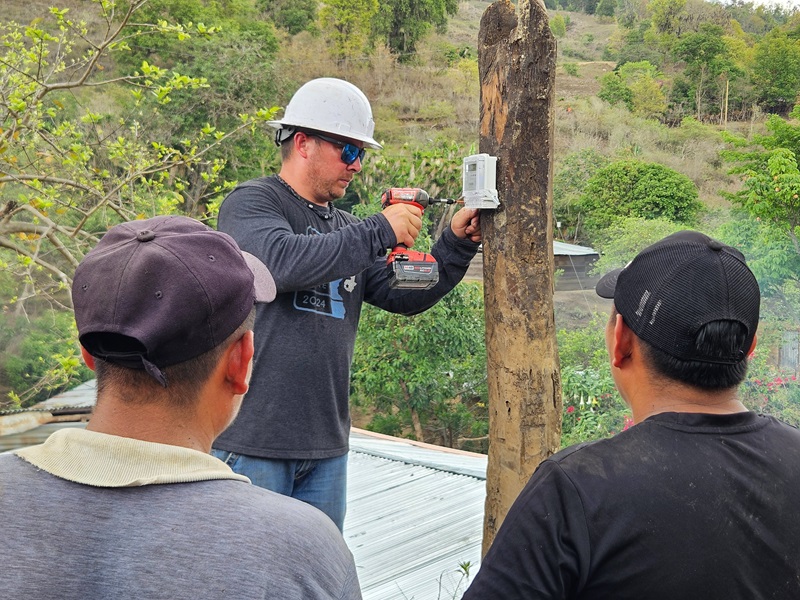
The local municipality will now manage the lines and serve the village. The introduction of electricity will bring meaningful change to the community. In rural villages, boys often attend school while girls are kept home to do housework and food preparation. With electricity, girls can join the boys attending school. Additionally, electricity brings numerous other benefits including: better health, fewer open fires in kitchens, refrigeration of food, economic growth and more.
“Electricity is going to bring them a better education and a better life,” said Willy, one of the team’s translators.
Along with building the line, the crews also wired the houses with a couple of outlets and light bulbs. Some younger boys were excited just to have light, so they wouldn’t have to use candles, while another man in his 50s said he can’t wait to get a refrigerator, so he can keep food.
On the last day up the mountain, the crews met the locals outside the village for a small ceremony and to say their goodbyes.
“Thank you to everyone who helped,” said the village’s leader, speaking on behalf of the community by expressing gratitude to the team. “You bring happiness for the hope that we can do more now with electricity.”
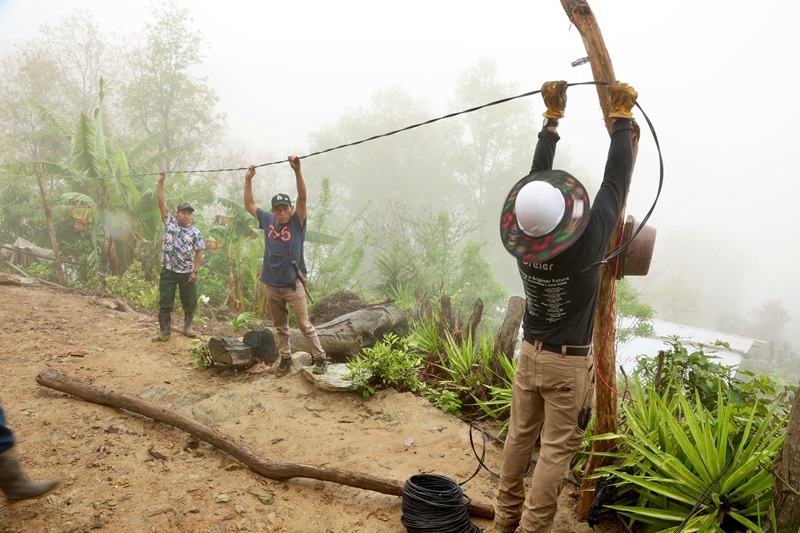
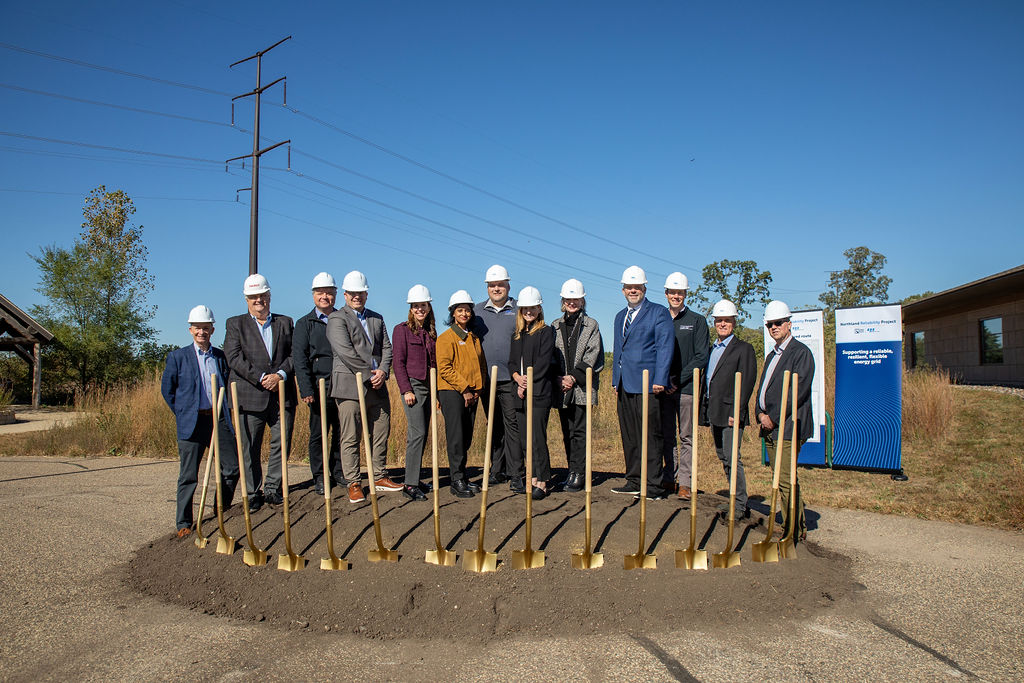 " data-object-fit="cover">
" data-object-fit="cover">